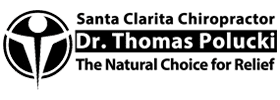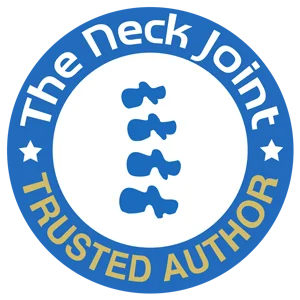Facial Pain in Santa Clarita CA

Even if it isn’t causing you pain, a clicking jaw can be associated with so many other health issues. A top Santa Clarita CA Chiropractor believes it could be linked to headaches, migraines, neck pain, shoulder tightness, and - believe it or not - lower back pain and even fibromyalgia.
What causes a clicking jaw in Santa Clarita CA?
A clicking jaw may actually be an early sign of something more significant going on with your body and with your health. Especially If you are experiencing any of the symptoms mentioned above, have you ever considered the possibility that they may be connected? The question is, do you simply want to treat the symptom? Or do you want to resolve the cause of the problem?
Many people don’t feel any sense of urgency to get treatment for a clicking jaw unless it causes pain when they chew or open their mouths. If this has ever happened to you - especially if your mouth is locked open or closed - it can be quite scary! You may have searched for a “jaw specialist” or “temporomandibular TMJ specialist” to help you. You may also have asked your dentist if they know what is going on.
However, if you are still looking for answers - and ideally, a natural solution - here is where a specific form of healthcare called upper cervical care may be able to help you. Because when it comes to a clicking jaw, the problem may not be coming from your mouth at all. It could well be coming from the base of your skull in your upper neck.
What no one has ever told you about a Clicking Jaw
The temporomandibular joint (TMJ) or jaw joint is formed between the pair of temporal bones, which are located along the sides of the skull behind your ear, and the mandible, which forms the lower part of your mouth. The console of the mandible is the rounded protuberance that sits inside the socket of the temporal bone, allowing for the opening-and-closing action of the mouth. The action is assisted by the semi-flexible nature of the mandible when the jaw muscles as activated.
So what’s the deal with that jaw-clicking sound?
Between the condyle of the mandible and the temporal bone socket is a small cartilaginous disc called a meniscus. The meniscus of the jaw is not unlike the cartilage inside of your knees, just much smaller and thinner. Its function is to assist with smooth movement as you open and close your mouth.
I something has caused that meniscus to shift out of position - even a few millimeters - it can start to rub against the adjacent bone and make a “click” sound when you open your mouth. Most characteristically, in my years of practice, it is because the condyle of the mandible is jammed too far backward, and the meniscus has shifted too far forwards. The question now is, “What causes the jaw and the meniscus to shift like that?” The most likely cause is a physical injury.
It could be something major such as a fall where you smacked your chin on a table. It could also be something less memorable but still significant like biting on a cherry pit, which leveraged against your teeth and caused your jaw to shift. However, it is also likely that it was something that didn’t directly affect your jaw at all, but actually affected your upper neck.
What is the Role of Your Upper Neck in a Clicking Jaw?
The muscles that control the position and movement of your jaw are all controlled by a single branch of the trigeminal nerve. The nerve fibers allow for muscle contraction and relaxation, and also the sensory feedback signals provide information about jaw position sense.
Here is the fascinating part: the group of brain cells that receive that sensory information (called the spinal trigeminal nucleus) actually descends to the level of C2 (and even as low as C4) in the upper cervical spine!
The importance of this arrangement is not to be underestimated! The vertebrae in the upper part of your neck - specifically the C1 (atlas) and C2 (axis) - contain thick ligaments that anchor onto the spinal cord. These ligaments assist with the normal protection of the spinal cord.
However, if you have ever suffered a whiplash-type injury where your head snapped back and forth, it can disrupt the normal alignment and motion of these vertebrae. If that happens, the normal protective function of these ligaments can create a physical pull on the brainstem, which can lead to neurological or other health issues.
Now, your body is not so fragile that things will break down all at once. Instead, your body will work to compensate by shifting the pressure into other parts of the body, potentially affecting the head, neck, and jaw position. … And in order to affect jaw position, your brain will change the activity of the muscles that allow you to move your mouth, causing one side to relax and the other side to tighten.
This change - multiplied by days, weeks, or even years - can cause the TMJ to start to rub, and voila (!), you can experience a clicking jaw. As I mentioned before, a clicking jaw doesn’t always have pain associated with it. That said, if you experience clenching, tension, or grinding (called bruxism), these may also be indicators of the underlying problem. If left to progress, the symptoms can evolve into nastier things including headaches on the side of your head or the back of your neck, a variety of TMJ disorders, a condition known as trigeminal neuralgia, arthritis, and even fibromyalgia.
And all this not even starting in your jaw, but all stem from an issue with the alignment and movement of your upper neck. Can Upper Cervical Care Help Your Clicking Jaw? If you are looking for a natural solution to help your clicking jaw, it is essential that the top bones in your neck are moving properly and aligned.
There are many types of therapy that focus on the TMJ and even on the upper neck. However, if you have not found a solution that works for you, it is possible that you have a more specific condition that requires a specific solution.
If so, here is where upper cervical care may be able to help you. upper cervical care is a unique approach to chiropractic developed in the USA that focuses on the alignment of the upper neck without cracking or spinal manipulation.
People are often amazed how even such light force - the equivalent of what we would use to palpate your pulse - can make such a substantial difference!
The procedure first involves a focused history that includes a structural analysis to determine where you hold your physical stress in your body. The second step involves a neurological assessment in order to establish your baseline pattern for where your health currently is. The third step involves a series of customized x-rays that we are able to perform on-site, which reveal the degree of misalignment in your neck, and thus where we need to focus our efforts.
Although upper cervical care is not a treatment for a clicking jaw per se, indirectly it can have a massive impact in helping to improve normal jaw movement and in providing relief from TMJ issues, headaches, neck pain, and all kinds of related conditions.
Have you Tried Upper Cervical Care to Help Your Clicking Jaw?
From a neurological, muscular, and health perspective, it is impossible to separate the TMJ from the upper neck. They work as one functional unit. Therefore, in the treatment and management of conditions including a clicking jaw or other jaw problems, it is essential to also assess the alignment and motion of the upper neck.
Our practice, located in Santa Clarita CA is dedicated to helping people with head, neck, and jaw-related conditions that are affecting their ability to enjoy the success, freedom, and life that they desire.
OFFICE HOURS
Monday
12:30pm - 5:30pm
Tuesday
12:30pm - 5:30pm
Wednesday
1:30pm - 5:30pm
Thursday
12:30pm - 5:30pm
Friday
Closed
Saturday & Sunday
Closed
Santa Clarita Chiropractor
25050 Peachland Ave #105
Santa Clarita, CA 91321





